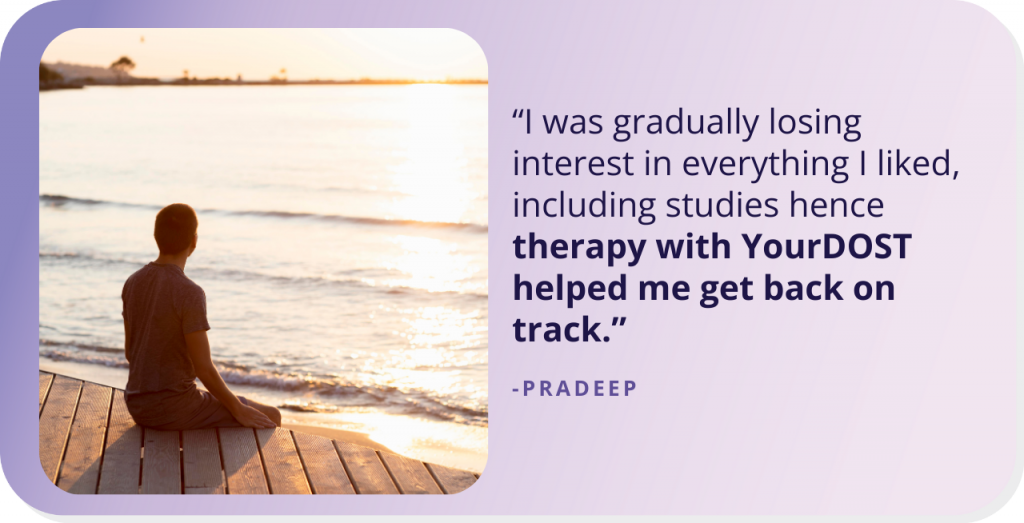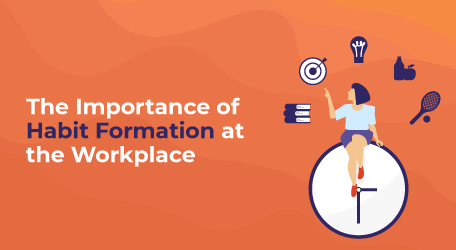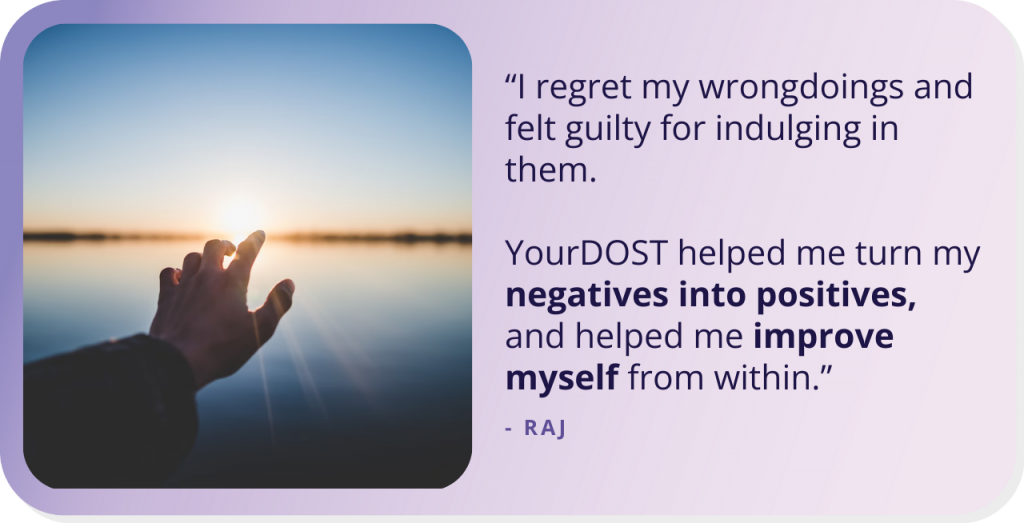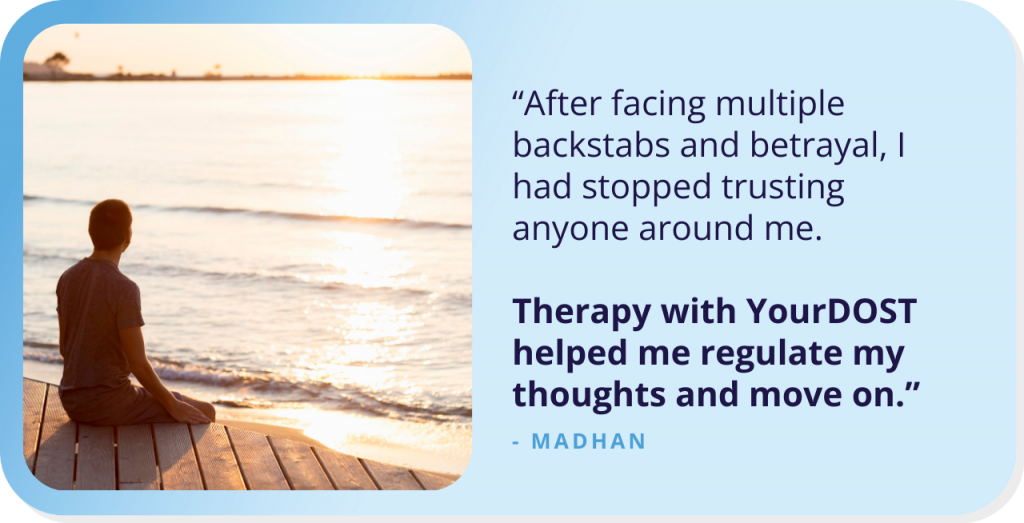
Moving Past The Pain of Betrayal With Therapy: Madhan’s Story of Determination
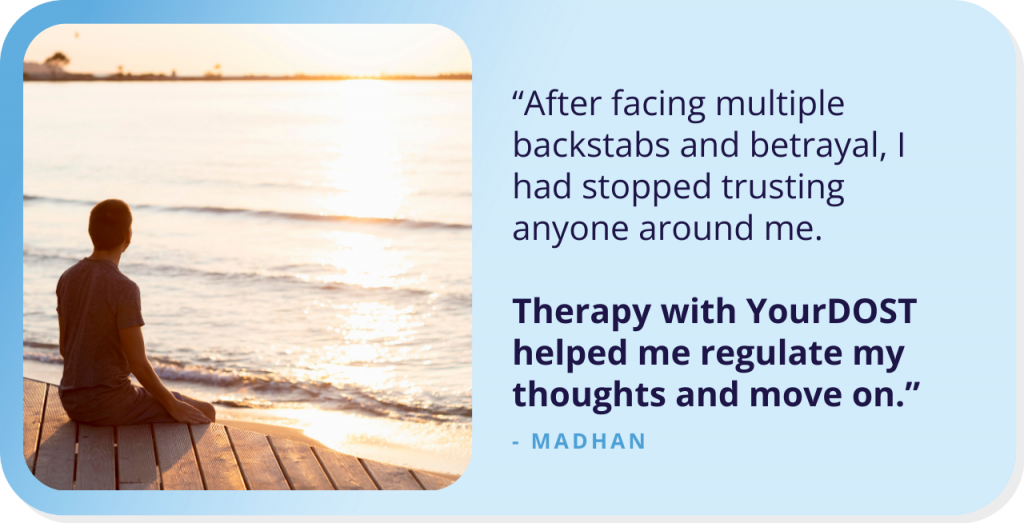
“Trust takes years to build, seconds to break, and forever to repair.” – Unknown
Trust is supposed to be the foundation of relationships and mental well-being. When it’s broken, the emotional burden we experience can be profound. It’s not just about the betrayal itself but the aftereffects that follow, like self-doubt, isolation, and the struggle to rebuild a sense of security. Moving past this emotional turmoil requires patience and, often, external support to find a way forward and restore trust in oneself and others.
Meet Madhan, who is a 24-year-old B.Com final-year student at Indian Academy in Bangalore. He grew up in a nuclear family with his parents and says that he was particularly close to his mother.
Madhan heard about the YourDOST platform from his college, which partnered with the organization as their official mental health partner.
When he found himself in a personal crisis after some time, he decided to give it a try. He approached YourDOST when he had a concern in his life, and it has been a big part of his journey since then.
Here, he met his counsellor, Joshy, and attending the session for the first time was nerve-wracking for him.
“I was quite nervous in the beginning and didn’t know what to say and wasn’t sure if it would help me. Initially, opening up about my concerns was hard, but after 2-3 sessions, I changed my mind and started to open up easily.”
The reason for seeking therapy was a deep sense of betrayal and mistrust. At 23, Madhan faced betrayal from his friends and colleagues, which led him to isolate himself from everyone, including his parents.
“Usually, after facing such an experience, it’s hard to trust anyone soon. So you subconsciously distance yourself from everyone.”

Madhan experienced backstabbing from friends and colleagues even in his workplace, which severely affected his mental health. He was overwhelmed with emotions and struggled with thoughts of revenge versus letting things go. It was during this tough time that he turned to therapy.
“My counsellor advised me to write down my emotions, but that did not work for me initially. I started feeling more overwhelmed.”
However, Joshy encouraged him to keep trying, assuring him that it would get better after a few attempts.
“He told me that it would feel the same way 2-3 times, but eventually I would feel positive”.
Another coping mechanism for Madhan was walking around his house alone at night, lost in his thoughts. This quiet activity provided him with some relief and time to process his feelings. He found that these moments allowed him to think more clearly about his situation and begin to untangle his emotions.
Over time, Madhan began to see positive changes in his demeanour.
“I understood that I should not act on my sudden emotions but think about it and work on the solution rather than confronting the emotion.”
In terms of feeling better, Madhan rates himself a 3 out of 5. He envisions improvement as getting motivated to work on himself. He acknowledges that the journey is ongoing but is hopeful about his progress.
As he continues on his path to self-improvement, Madhan is determined to apply the lessons he has learned. He knows that the journey is not about achieving perfection but about continuous growth and learning.
We at YourDOST believe that Madhan is on his way to achieving his goals and wish him luck in all his future endeavours!
Madhan’s Warrior Tips:
1.“No one should undergo such mental health issues; it’s essential to work on yourself.”
2.“Mingle with people and connect with them rather than being all alone.”

